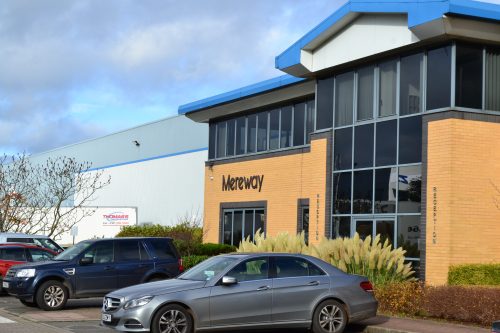“Significant” competition, but business is good, says Birmingham kitchen manufacturer

A third of Mereway Kitchens’ 300 employees have been with the company for 20 years, and 2018 will see a record 13 employees mark this milestone. But while its workforce tends to stick around for a long time, Mereway’s 30 year-history has been defined by continuous adaptation in the face of industry challenges.
Traditionally a kitchen and bathroom manufacturer, the family company expanded to bedrooms in 2014. This was followed by the launch of Trend Interiors, a smaller business aimed at the mid- to low-end market, which increased business by more than half in its second year.
Mereway, a finalist in TheBusinessDesk.com’s Business Master’s awards ‘Large business’ category, has also launched a range of own-brand products across its entire kitchen, bathroom and bedroom ranges, and adopted a lean manufacturing process to create more space, machinery and manpower, and reduce waste. Everything across the business – from kitchens to bedrooms – is produced on the same factory floor, thanks to lean manufacturing.
Mereway’s sales and marketing director, Graham Jones, says business is “very good” at the moment. The company has just come out of its kitchens and bathrooms trade show, which it holds once every two years at the NEC in Birmingham. Since the last show, Mereway has been focused on diversifying from just kitchens and bathrooms into bedrooms – a decision Jones says has been “very money- and time-consuming”.
The business has also expanded to new depot outlets called “Home Joinery – Trade and DIY,” aimed at builders’ merchants, providing an over-the-counter and planning service, the first of which opens this month in Nuneaton. And these are just some of the ways Mereways has adapted to significant changes in the industry, according to Jones.
“In the last 30-odd years, loads of things have changed. One challenge is that the level of competition is significant; we’ve faced increased competition from Europe and further, such as China.”
Another challenge has been the rapid pace of technological change meaning Mereway has to keep up with constant developments and innovations, Jones says, which has caused its development cycle to shorten.
“We’ve had to react quicker. The market is becoming a smaller place and we have to go to lots of exhibitions and supplier exhibitions in various countries, and we have to have very good product development team on board,” Jones says. Mereway also needs to speak a lot more regularly to customers and understand their needs. “We need to be a lot more responsive and reactive overall,” Jones says.
One of the secrets to its innovation – and a theme running through Mereway’s application to the Business Master’s awards – is its reputation for staff retention.
“It’s still a family company,” Jones says, “with family ethics. The owners are closely engaged with the company, and pretty much know everyone by their first names. Employees feel like they’re part of bigger picture and they take pride in working here because we look after people.”
Employees are offered regular training to further their skills, Jones says, and they get a lot of satisfaction from producing something that adds value.
“A lot of products are still handmade and made-to-order, so we’re reliant on traditional joinery and woodworking techniques. There are a lot of skilled jobs at Mereway,” Jones says.
But unlike the culture of encouraging failed ideas that’s taking over digital tech – and famously pioneered by Apple – Mereway adopts a “right first time” culture.
“With kitchens, it’s imperative to have this culture. A kitchen might be made up of 40 or 50 different components, so if a kitchen-fitter starts and one single component is missing, it delays the whole installation,” Jones says.
It’s a “very complicated” business to work in, Jones says, because there’s pressure to deliver everything on time and in full.
Despite the industry’s challenges, Mereway appears to be doing things right for both its customers, and its staff. Only time will tell if the company, or its competitors, fall behind in such a rapidly evolving sector.







